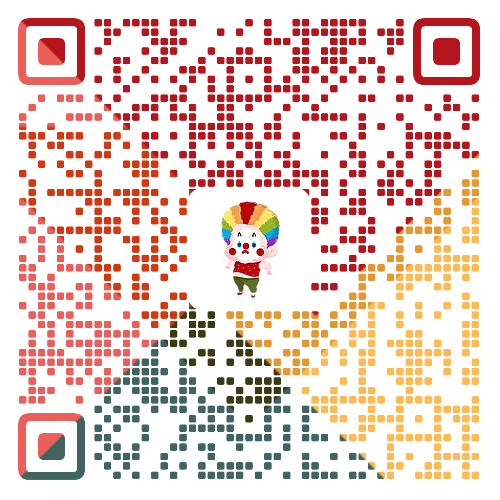一、窗口加载事件 1 2 3 window .onload = function (或; window .addEventListener ("load" , function (
1. window.onload window.onload : 窗口(页面)加载事件,当页面完成加载后直接触发事件,就调用的处理函数
有了 window.onload,就可以把 JS 代码放到页面元素的任何地方,因为 onload 是页面加载完成后才调用的函数 页面有多个 window.onload 时,以最后一个为准 1 2 3 4 5 6 7 8 9 10 11 12 13 14 15 16 <script > window .onload = function ( var but = document .querySelector ('button' ); but.addEventListener ('click' , function ( alert ('弹框1' ) }) } window .onload = function ( alert ('弹框2' ) } </script > <div class ="demo" > <button > 点击</button > </div >
2. addEventListener 注意:
1 2 3 4 5 6 7 8 9 10 11 12 13 14 15 16 <script > window .addEventListener ('load' , function ( var but = document .querySelector ('button' ); but.addEventListener ('click' , function ( alert ('弹框1' ) }) }) window .addEventListener ('load' , function ( alert ('弹框2' ) }) </script > <div class ="demo" > <button > 点击</button > </div >
3. DOMContentLoaded DOMContentLoaded : DOM 加载完成后即可触发,不用等待 图片、视频等资源加载
1 2 3 document .addEventListener ("DOMContentLoaded" , function ( alert ("不用等待页面资源加载" ); });
load 与 DOMContentLoaded 的区别:
load 等页面内容全部加载完毕,包含页面 dom 元素 图片 flash css 等等 DOMContentLoaded 是 DOM 加载完毕,不包含图片 falsh css 等就可以执行 加载速度比 load 更快一些 二、 调整窗口大小事件 1 2 3 window .onresize = function (或; window .addEventListener ("resize" , function (
window.onresize : 调整窗口大小加载事件,当触发时就调用的处理函数
注意:
只要窗口大小改变,就会触发这个事件 常利用这个事件完成响应式布局window。innerWidth : 获取当前窗口的宽度 1 2 3 4 5 6 7 8 9 10 11 12 <div class ="demo" > </div > <script > var div = document .querySelector ('.demo' ); window .addEventListener ('resize' , function ( if (window .innerWidth <= 900 ){ div.style .display = 'none' ; }else { div.style .display = 'block' ; } }) </script >
三、 定时器 1. setTimeout 语法:
1 window .setTimeout (调用函数, [延迟的毫秒数]);
setTimeout : 用于设置一个定时器,该 定时器 在 定时到期 后 执行函数
window 在调用时可以省略不写 延时时间的单位为 毫秒 ,省略延时时间,则默认为 0; 调用的函数可以直接写,也可以写函数名; 多个定时器时,可以使用不同的变量接收; 1 2 3 4 5 6 7 8 9 10 11 12 13 14 15 16 17 18 19 20 21 22 <div class ="demo" > </div > <script > var div = document .querySelector ('.demo' ); setTimeout (() => { console .log ('3s之后消失' ); div.style .display = 'none' ; }, 3000 ); setTimeout (block, 5000 ); function block (){ console .log ('5s之后出现' ); div.style .display = 'block' ; } var time1 = setTimeout (() => { console .log ('计时器1' ); }) var time2 = setTimeout (() => { console .log ('计时器2' ); }) </script >
停止 计时器 语法:
1 window .clearTimeout (计时器标识符);
1 2 3 4 5 6 7 8 var st = setTimeout (() => { div.style .display = "none" ; }, 5000 ); but.addEventListener ("click" , function ( clearTimeout (st); });
2. setInterval setInterval() : 每过固定的时间,调用一次 函数
语法:
1 window .setInterval (回调函数, [间隔的毫秒数]);
window 可以省略 调用的函数 可以直接写,也可以写函数名 间隔时间单位为 毫秒 ,不行默认为 0 可以用变量接收计时器 1 2 3 4 var st1 = setInterval (() => { --i; div.innerHTML = i + "<span>X</span> <button> 停止倒计时</button>" ; }, 1000 );
停止定时器 (clearInerval) 语法:
1 window .clearInterval (intervalID);
案例 —- 倒计时 代码示例 1 2 3 4 5 6 7 8 9 10 11 12 13 14 15 16 17 18 19 20 21 22 23 24 25 26 27 28 29 30 31 32 33 34 35 36 37 38 39 40 41 42 43 44 45 46 47 48 49 50 51 52 53 54 55 56 57 58 59 60 61 62 63 64 65 66 67 68 69 70 71 72 73 74 75 76 77 78 79 80 81 82 83 84 85 86 87 88 89 90 91 92 93 94 95 96 97 98 99 100 101 102 103 104 105 106 107 108 109 110 111 112 113 114 115 116 117 118 119 120 121 122 123 124 125 126 127 128 129 130 131 132 133 134 135 136 137 138 139 140 141 142 143 144 145 146 147 148 149 150 151 152 153 154 155 156 157 158 159 160 161 162 163 164 165 166 167 168 169 170 171 172 173 174 <!DOCTYPE html > <html lang ="en" > <head > <meta charset ="UTF-8" /> <meta http-equiv ="X-UA-Compatible" content ="IE=edge" /> <meta name ="viewport" content ="width=device-width, initial-scale=1.0" /> <title > Document</title > <style > * { margin : 0 ; padding : 0 ; box-sizing : border-box; font-style : normal; } li { list-style : none; } @font-face { font-family : 'iconfont' ; src : url ('//at.alicdn.com/t/font_2303857_w55dl274uko.woff2?t=1640252281330' ) format ('woff2' ), url ('//at.alicdn.com/t/font_2303857_w55dl274uko.woff?t=1640252281330' ) format ('woff' ), url ('//at.alicdn.com/t/font_2303857_w55dl274uko.ttf?t=1640252281330' ) format ('truetype' ); } .demo { width : 168px ; height : 237px ; background-color : #F74630 ; margin : 100px auto; overflow : hidden; } .box { width : 122px ; height : 123px ; margin : 46px 22px 17px ; } .box h2 { height : 40px ; color : #fff ; text-align : center; font-size : 30px ; } .box h6 { height : 20px ; font-size : 17px ; text-align : center; color : #ccc ; } .box span { display : block; font-family : 'iconfont' ; content : '\e6da' ; height : 40px ; color : rgb (139 , 230 , 20 ); font-size : 40px ; } .box em { display : block; height : 17px ; font-size : 15px ; color : #fff ; text-align : center; } .times { position : relative; height : 40px ; width : 122px ; margin : 0 22px ; } .bgc li { float : left; width : 35px ; height : 16px ; background-color : #333 ; margin : 1px 2px 0 ; } .time li { float : left; color : #fff ; font-size : 18px ; font-weight : 700 ; } .time li :nth-child (1 ) { position : absolute; left : 10px ; top : 5px ; } .time li :nth-child (2 ) { position : absolute; left : 47px ; top : 5px ; } .time li :nth-child (3 ) { position : absolute; left : 86px ; top : 5px ; } </style > </head > <body > <div class ="demo" > <div class ="box" > <h2 > 京东秒杀</h2 > <h6 > FLASH DEALS</h6 > <span > </span > <em > 本场距离结束还剩</em > </div > <div class ="times" > <ul class ="bgc" > <li > </li > <li > </li > <li > </li > <li > </li > <li > </li > <li > </li > </ul > <ul class ="time" > <li > </li > <li > </li > <li > </li > </ul > </div > </div > <script > var lis = document .querySelector ('.time' ).querySelectorAll ('li' ); var inputTime = +new Date ('2021-12-24 18:03:00' ); function conutDown ( var nowTime = +new Date (); var times = (inputTime - nowTime) / 1000 ; var h = parseInt (times / 60 / 60 % 24 ); h = h < 10 ? '0' + h : h; lis[0 ].innerHTML = h; var m = parseInt (times / 60 % 60 ); m = m < 10 ? '0' + m : m; lis[1 ].innerHTML = m; var s = parseInt (times % 60 ); s = s < 10 ? '0' + s : s; lis[2 ].innerHTML = s; } setInterval (function ( if (parseInt (lis[0 ].innerHTML ) == 0 && parseInt (lis[1 ].innerHTML ) == 0 && parseInt (lis[2 ].innerHTML ) == 0 ){ lis[0 ].innerHTML = '00' ; lis[1 ].innerHTML = '00' ; lis[2 ].innerHTML = '00' ; return false ; }else { conutDown (); } }, 1000 ) </script > </body > </html >
案例 —- 验证码发送 代码示例 1 2 3 4 5 6 7 8 9 10 11 12 13 14 15 16 17 18 19 20 21 22 23 24 25 26 27 28 29 30 31 32 33 34 35 36 <!DOCTYPE html > <html lang ="zh" > <head > <meta charset ="UTF-8" > <meta name ="viewport" content ="width=device-width, initial-scale=1.0" > <meta http-equiv ="X-UA-Compatible" content ="ie=edge" > <title > </title > <style type ="text/css" > </style > </head > <body > <div class ="demo" > <input type ="text" name ="" id ="yv" value ="" /> <input type ="button" name ="" id ="fs" value ="发送验证码" /> </div > <script type ="text/javascript" > var fs = document .querySelector ('#fs' ); var time = 5 ; fs.addEventListener ('click' , function ( fs.disabled = true ; var si = setInterval (function ( if (time > 0 ){ fs.value = '验证码 ' + time + 's 后可以再次发送' ; time--; }else { clearInterval (si); fs.value = '发送验证码' ; fs.disabled = false ; time = 5 ; } }, 1000 ) }) </script > </body > </html >
3. this 的指向问题 全局作用域或者普通函数中 this 指向全局对象 window定时器里面的 this 指向 window 方法中的 this ,谁调用就 指向 谁 四、 JS 执行机制 1. 同步 和 异步 同步 : 程序的执行顺序与任务的排列顺序一致,前一个任务结束后才会执行下一个任务;
异步 : 在执行一个任务的同时执行另一个任务
同步任务:
异步任务:
JS 的异步 是通过 回调函数实现的 包含:普通事件(click、resize 等)、资源加载(load、error 等)、定时器(setInterval、setTimeout 等) 2. JS 执行 机制 事件循环 :
当主线程的同步任务执行完成后,会不断的去获取异步任务再到主线程执行 五、 location 对象 location : 用于获取 或 设置 窗体的 URL,并解析 URL
1. URL URL 的一般语法格式:
1 2 3 protocol://host[:port]/path/[?query] http://www.itcast.cn/index.html?name=andy&age=18
组成 说明 protocol 通讯协议(http、https) host 主机域名(www.pupper.cn) port 端口号(可选,http 的默认端口为 80) path 路由(由 0 到 多个 “/“ 隔开的字符串,一般为主机文件地址) query 参数 (以键值对的形式,通过 “&” 符号分割开来 fragment 片段 “#” 后面的内容,常见于连接锚点
2. location 对象属性 对象属性 返回值 location.href 获取 或者 设置 整个 URL location.host 返回 注意域名(www.pupper.cn) location.port 返回 端口号 (如果未写,则返回 空字符串) location.pathname 返回 路径 location.search 返回 参数 location.hash 返回 片段 ( # 后面的内容,常见于连接 锚点)
案例 —- 页面自动跳转 1 2 3 4 5 6 7 8 9 10 11 12 13 14 15 16 17 18 19 <div class ="demo" > <button type ="button" > 点击</button > </div > <script type ="text/javascript" > var but = document .querySelector ('button' ); var div = document .querySelector ('.demo' ); var time = 5 ; but.addEventListener ('click' , function ( var si = setInterval (function ( if (time > 0 ){ div.innerHTML = time + 's 后跳转页面。' ; time--; }else { location.href = 'https://pupper.cn' ; clearInterval (si); } }, 1000 ) }) </script >
案例 —- 不同页面参数获取
1 2 3 4 5 6 <div class ="demo" > <form action ="demo2.html" > <input type ="text" name ="uname" id ="" value ="" placeholder ="请输入用户名" /> <input type ="submit" value ="登录" id ="login" /> </form > </div >
</code-block>
1 2 3 4 5 6 7 8 9 10 11 <div class ="demo" > 欢迎 <span > </span > 登录 </div > <script type ="text/javascript" > var sp = document .querySelector ('span' ); var uname = location.search ; var un = uname.slice (1 ).split ('=' ); sp.innerHTML = un[1 ] </script >
</code-block>
3. location 对象 方法 对象方法 返回值 location.assign() 和 href 一样,可跳转页面(重定向页面), location.replace() 替换当前页面,因为不记录历史,所以不能后退页面 location.reload() 重新加载页面,相当于刷新按钮 或 F5
1 2 3 4 5 6 7 8 9 10 11 12 13 14 15 16 17 18 19 20 21 22 23 24 25 <div class ="demo" > <button type ="button" class ="but1" > assign(可以后退页面)</button > <button type ="button" class ="but2" > replace(不能后退页面)</button > <button type ="button" class ="but3" > relode(刷新页面)</button > <button type ="button" class ="but4" > relode(强制刷新页面)</button > </div > <script type ="text/javascript" > var but1 = document .querySelector ('.but1' ); var but2 = document .querySelector ('.but2' ); var but3 = document .querySelector ('.but3' ); var but4 = document .querySelector ('.but4' ); but1.addEventListener ('click' , function ( location.assign ('https://www.baidu.com' ); }); but2.addEventListener ('click' ,function ( location.replace ('http://pupper.cn' ); }); but3.addEventListener ('click' ,function ( location.reload (); }); but4.addEventListener ('click' ,function ( location.reload (true ); }); </script >
五、 navigator 对象 navigator : 对象包含有关 浏览器 的所有信息
userAgent : 包含了用户的浏览器信息
案例 —- 根据用于浏览器信息,跳转 pc 页面或手机页面 1 2 3 4 5 6 7 8 9 if ( navigator.userAgent .match ( /(phone|pad|pod|iPhone|iPod|ios|iPad|Android|Mobile|BlackBerry|IEMobile|MQQBrowser|JUC|Fennec|wOSBrowser|BrowserNG|WebOS|Symbian|Windows Phone)/i ) ) { window .location .href = "../H5/index.html" ; } else { window .location .href = "../P/index.html" ; }
六、 history 对象 history : 与浏览器的 历史记录 进行交互,该对象包含用户 访问过的 URL
对象方法 作用 back() 后退 forward() 前进 go(参数) 前进后退弄能,参数如果是 1 ,则前进一个页面,
1 2 3 4 5 6 7 8 9 10 <div class ="demo" > <a href ="demo2.html" > 点击我页面跳转</a > <button type ="button" > 前进</button > </div > <script type ="text/javascript" > var but = document .querySelector ('button' ); but.addEventListener ('click' , function ( history.forward (); } ) </script >
</code-block>
1 2 3 4 5 6 7 8 9 10 <div class ="demo" > <a href ="demo.html" > 点击我页面跳转</a > <button type ="button" > 后退</button > </div > <script type ="text/javascript" > var but = document .querySelector ('button' ); but.addEventListener ('click' , function ( history.back (); } ) </script >
</code-block>














